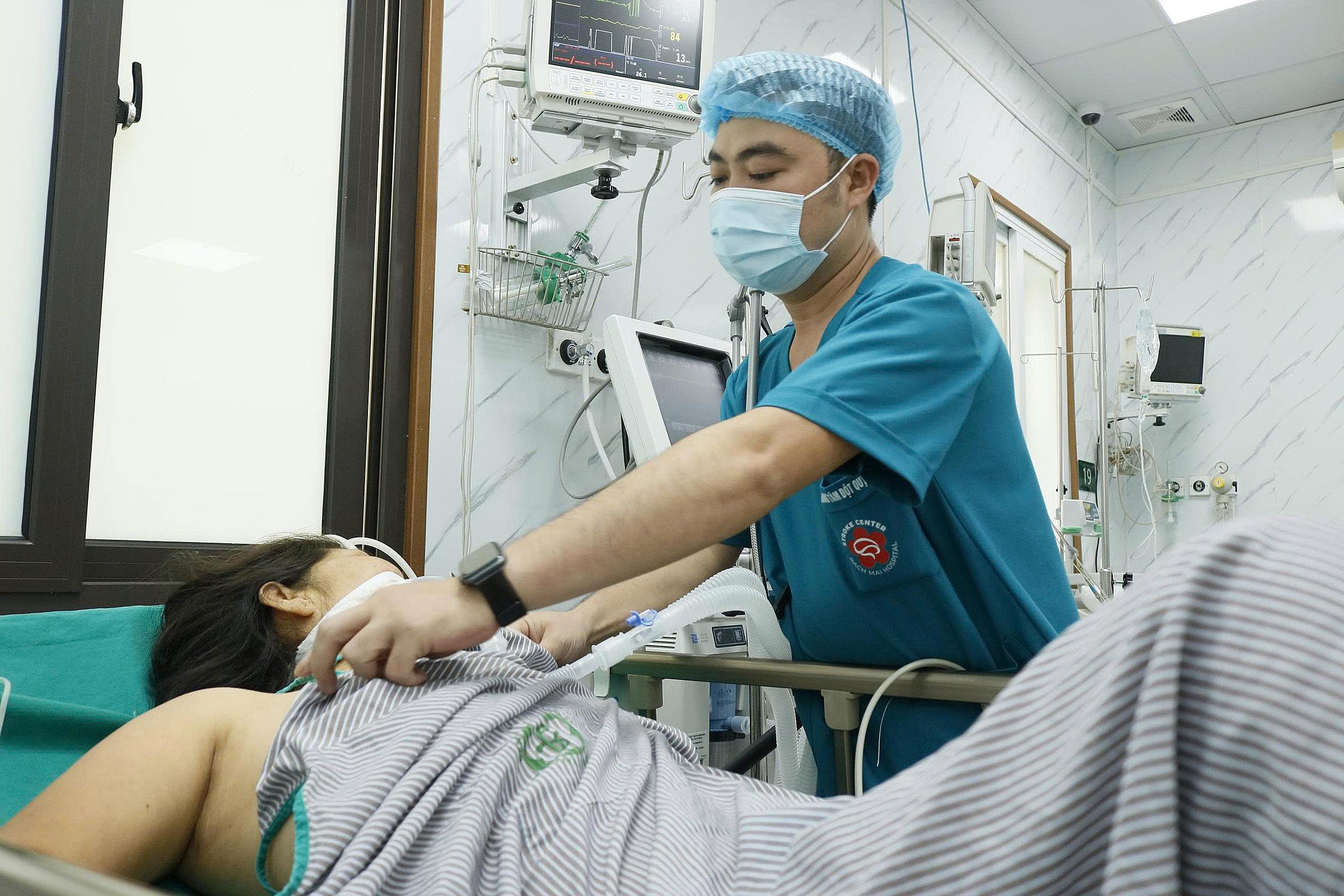Doctor Nguyen Tien Dung, Deputy Director of the Stroke Center at Bach Mai Hospital, explains that extreme heat significantly increases health risks, especially for vulnerable groups like the elderly, those with cardiovascular diseases, high blood pressure, diabetes, or a history of stroke.
The body loses water and electrolytes rapidly in hot weather. Dehydration increases blood viscosity and reduces circulatory volume, forcing the heart to work harder to pump blood. This raises the risk of blood clots, a leading cause of ischemic stroke.
Hot weather also overloads the cardiovascular system. The body works hard to lower its temperature through sweating and peripheral vasodilation, putting a strain on the cardiovascular system, which may already be weakened by a previous stroke or underlying conditions. This can lead to heart attacks, heart failure, or sudden spikes in blood pressure, all of which increase the risk of recurrent strokes.
Furthermore, hot weather disrupts thermoregulation. Elderly individuals and those with nervous system damage (such as after a stroke) often struggle to regulate their body temperature effectively in response to sudden temperature changes. This can lead to heat exhaustion or heat stroke, a life-threatening emergency.
Extreme weather also exacerbates inflammatory processes and oxidative stress in the body, both of which are linked to vascular damage and stroke risk. Certain medications commonly used after a stroke or for cardiovascular diseases (such as diuretics and some blood pressure medications) can worsen dehydration or hinder the body's ability to adapt to heat.
According to Doctor Dung, there is misinformation circulating on social media claiming that "for every 1 degree Celsius increase in temperature, the risk of stroke increases by 10%." "This information has no scientific basis. It's impossible to reduce such a complex relationship to a simple formula based solely on temperature," he said.
Numerous epidemiological studies, cited by the WHO regarding the health impacts of climate change, show that extreme heat waves significantly increase hospitalizations and deaths from cardiovascular diseases, including stroke, especially in vulnerable populations. However, the degree of increase varies and cannot be expressed as a fixed percentage per degree of temperature rise.
The risk of stroke depends on many complex factors: personal medical history (stroke, cardiovascular disease, high blood pressure, diabetes, etc.), age, current health status, activity level, access to cool environments, hydration levels, adherence to treatment, other environmental factors (humidity, air pollution), and duration of exposure to high temperatures.
 |
A patient being treated at the Stroke Center, Bach Mai Hospital. Photo: The Anh |
A patient being treated at the Stroke Center, Bach Mai Hospital. Photo: The Anh
What can people with underlying conditions or a history of stroke do to prevent heat-related complications?
Stay hydrated: Drink fluids regularly, even before feeling thirsty. Prioritize water and electrolyte drinks, and limit sugary drinks, coffee, and alcohol (as they can dehydrate). Carry water when going out. Monitor urine color (dark yellow urine is a sign of dehydration).
Stay cool: Limit time outdoors, especially between 10 a.m. and 4 p.m. when the sun is strongest. If going out is unavoidable, wear a wide-brimmed hat, sunglasses, loose, light-colored clothing, and use sunscreen.
Cool your body and home: Use fans or air conditioning. Take cool showers or sponge baths. Close curtains on sun-facing windows. Use a humidifier or place water bowls indoors to increase humidity.
Eat a healthy diet: Eat light meals with plenty of vegetables and water-rich fruits (watermelon, oranges, grapefruit, etc.). Limit fatty foods and sweets. Avoid overeating.
Monitor your health closely: Check your blood pressure more frequently as directed by your doctor. Strictly adhere to your treatment plan, taking medications on time and at the correct dosage. Do not stop or change medications without consulting your doctor.
Le Nga












